Section "French inheritance." How Hitler humiliated France
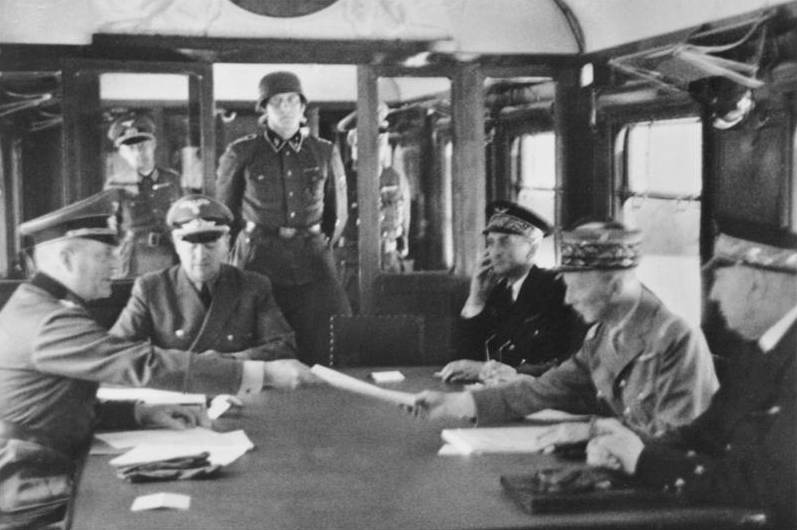
80 years ago, on June 22, 1940, France signed a surrender at Compiegne. The new Compiegne truce was signed at the same place where the ceasefire was signed in 1918, which, according to Hitler, symbolized historical revenge of Germany.
The collapse of the French front
On June 12, 1940, the French front collapsed. In the western sector, the Germans crossed the Seine, in the east south of the Marne they reached Monmiraia. Champagne south irresistibly moved Tanks Guderian. With the consent of the government, the French commander in chief Weygand declared the French capital an open city. On June 14, the Nazis occupied Paris without a fight. By order of Weygand, the French troops began a general retreat, trying to get out of enemy attacks. The French command planned to create a new line of defense from Caen on the coast, Le Mans, Middle Loire, Clamcy, Dijon, Dol.
The High Command of the Wehrmacht, with the French leaving the area of Paris, from the fortress area of Epinal, Metz and Verdun specified the tasks for the troops to develop the Roth plan. The Nazis wanted to prevent the enemy from creating a new line of defense and destroy his main forces. The armies on the left flank of the German front were targeting Orleans, Cherbourg, Brest, Lorient and Saint-Nazaire. Tank groups in the center of the front were to quickly overcome the Langr plateau and reach the river. Loire.
Without clear instructions, a command ready to stand to their deaths, the demoralized French troops quickly retreated, not having time to gain a foothold at any line. The French did not dare to use numerous large cities and industrial areas to give battle to the enemy. The Germans occupied numerous French cities without a fight. Kleist's tank group reached the river. Seine northwest of Troyes, and continued to move south to Lyon. Already on June 17, the Germans occupied Dijon. Guderian tanks continued a deep detour of the Maginot Line. The French garrisons in Alsace and Lorraine were cut off from the main forces. On June 15, Guderian’s divisions were occupied by Langre, on the 16th by Gre and 17th by Besancon. The Nazis reached the border of Switzerland, the French troops on the Maginot line fell into the "boiler".
Section "French Pie"
The French government fled to Bordeaux. Marshal Peten and his supporters demanded that negotiations begin on surrender, while all is not lost. They persuaded the vacillating members of the government and parliament. Premier Reynaud, yielding to the defeatists, still dragged on time, knowing that he would have no place in the new government. On June 16, he resigned. On the eve of Reynaud sent a telegram to Roosevelt and begged the United States to save France.
The British, seeing that France was over, conducted their own policies. London decided to no longer provide military material assistance to France and urgently evacuate the troops remaining there. British troops under the command of General Brooke were removed from submission to the French command. The British government was now more concerned with the question of the "French inheritance." France was the second colonial empire in the world. Vast territories were left without a “master”, since the French abandoned the idea of evacuating the government in the colony. There was a threat of the seizure by the Nazis of part of the French possessions, especially in North Africa. The British were very afraid of such a prospect. The British colonial empire was already at stake. The fate of the French Navy was also connected with the question of the French colonies. fleet. The capture of the navy by the Nazis changed the situation in the seas and oceans. The British, in the event of a French armistice with the Germans, demanded the immediate transfer of French ships to English ports.
On June 16, Churchill proposed the formation of a French émigré government, which would formally lead the colonies, and the British would gain actual control over them. That is, Churchill, in fact, proposed making the French colonial empire the dominance of Britain. The plan was promoted in the form of an “indissoluble Franco-British alliance” with a single constitution, citizenship, and a common executive and legislative branch. The "merger of states" allowed London to use the resources of the French colonies and the French fleet. However, for the French it was obvious that with such a "merger" the British would dominate the empire. This offended the pride of the French. In addition, the creation of the Franco-British alliance meant the continuation of the war with Nazi Germany. Part of the large French capital has already estimated the profits from surrender, restoration and use of the capabilities of the “Hitler European Union”.
Thus, the French ruling elite chose to surrender to Germany. Churchill’s project, in fact, the surrender of the French empire to the British, was rejected. French capital was counting on beneficial cooperation with the Reich after the war. Raynaud resigned. The new government was led by Petain.
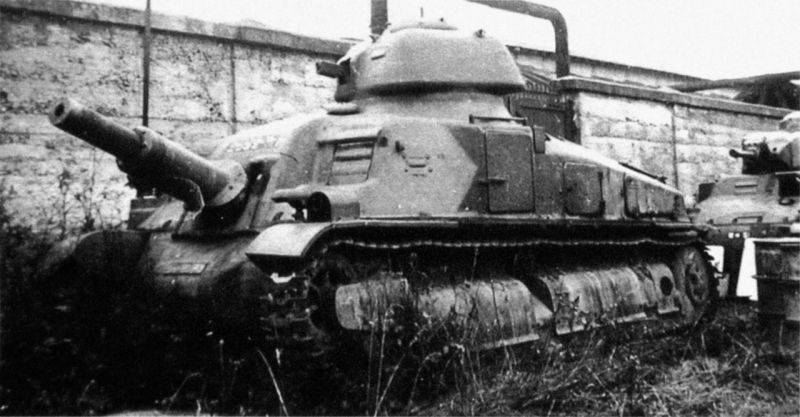
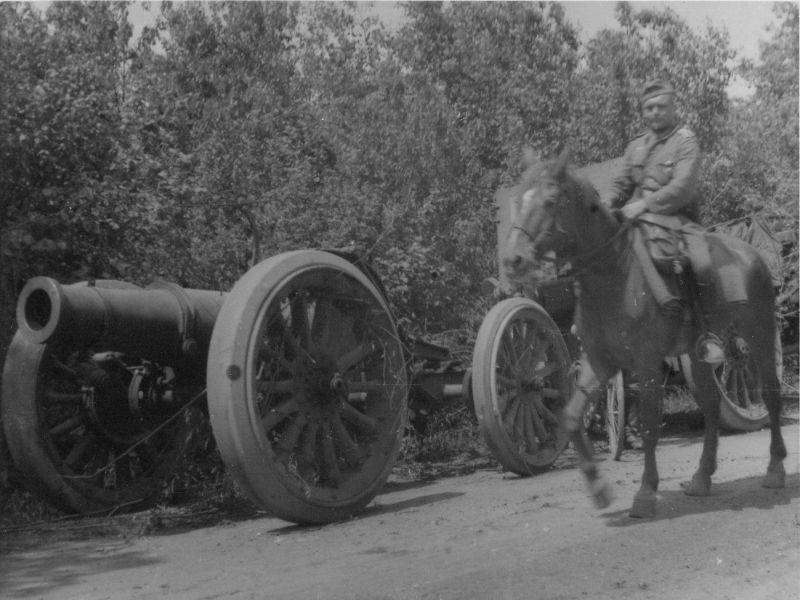
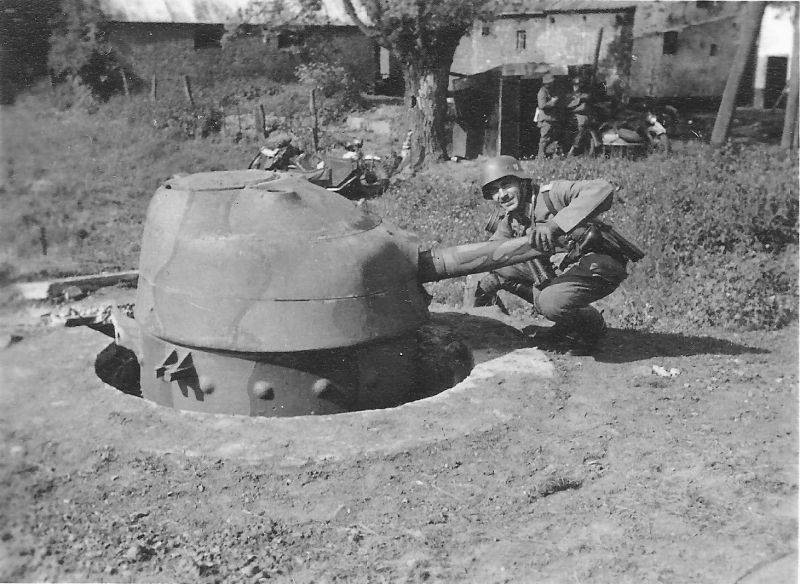
Surrender of france
On June 17, 1940, the Peten government unanimously decided to ask the Germans for peace. The mediator was Spain. A proposal for a truce through the Vatican was sent to Italy. Peten also appealed on the radio with an appeal to the people and the army to "stop the fight." This appeal completely demoralized the army. Pétain, without waiting for an answer from the enemy, essentially ordered an end to the resistance. The Germans actively used Pétain's call to break down the still defending French troops. The chief of the French General Staff, General Dumenk, in order to somehow preserve the army, called on the troops to continue the defense until the signing of the armistice.
June 18, the French authorities ordered the army to leave without battle all the cities with a population of over 20 thousand people. The troops were forbidden to conduct in the cities, including their outskirts, military operations and to carry out any destruction. This led to the final disorganization of the French army.
Berlin reacted positively to the change of government in France and the proposal for a truce. However, Hitler was in no hurry to answer. First, the German army was in a hurry to use the actual fall of the French front to occupy the maximum possible territory. Secondly, it was necessary to resolve the issue of Italian claims. Mussolini wanted to get the southeastern part of France to the river. Rhone, including Toulon, Marseille, Avignon and Lyon. The Italians claimed Corsica, Tunisia, French Somalia, military bases in Algeria and Morocco. Italy also wanted to get part of the French fleet, aviation, heavy weapons, military stocks and vehicles. That is, Italy established its dominance in the Mediterranean basin. Such appetites of Mussolini annoyed Hitler, he did not want excessive strengthening of the ally. The Italian army did not deserve such a booty, having achieved virtually no success on the Alpine sector of the front. In addition, the Fuhrer did not want to anger the French with "excessive" requirements.
Hitler was forced to reckon with the real military-political situation. France suffered a crushing military defeat. I lost heart. However, the country still had enormous military material and human resources. “Excessive” requirements could strengthen the wing of the irreconcilable, cause resistance. France had rich overseas possessions, the ability to evacuate part of the government and parliament there, the remaining troops, reserves, and navy. Hitler knew about the danger of a protracted struggle, Germany was not ready for such a war. The Germans feared that the French fleet might go to the British. In his system there were 7 battleships, 18 cruisers, 1 aircraft carrier, 1 air transport, 48 destroyers, 71 submarines and other ships and vessels. Germany did not have a strong Navy to conduct an operation to capture the French fleet. This task was delayed for the future. While the German command wanted the French ships to remain in the ports of France, they did not go to England or the colonies.
Peten and his supporters understood that Hitler would only negotiate with them if they retain control of the colonies and navy. Therefore, the Peten government tried to prevent the creation of a government in exile. The defeatists did their best to prevent the departure of those politicians who could lead the government in exile.
Meanwhile, the German army continued the offensive with the aim of occupying the most important areas of France. On June 18, the mobile units of the 4th Army occupied Cherbourg in Normandy; on June 19, Rennes in Brittany. The troops of the 10th French army in the north-west of the country stopped resistance. On June 20, the Germans captured the French naval base in Brest. On the coast of the Atlantic Ocean, the Nazis captured St. Nazaire, Nantes, and La Rochelle on June 22-23. Another German group advanced south, forcing the Loire between Orleans and Nevers.
On the western border of France, the army group "Ts" went on the offensive: the 1st and 7th armies. Guderian’s tank group, which launched an attack on Epinal and Belfort, was transferred to Army Group Ts. The French troops, who had left the Maginot line on the orders of Weygand, the 2nd Army Group (3rd, 5th and 8th Armies), were surrounded. On June 22, General Conde, commander of the 2nd Army Group, ordered surrender. 500 thousandth French group folded weapon. Only individual garrisons on the Maginot Line and units in the Vosges continued to resist. On June 20, the Italian army attempted to break through French defense in the Alps. However, the French Alpine army repelled the attack.
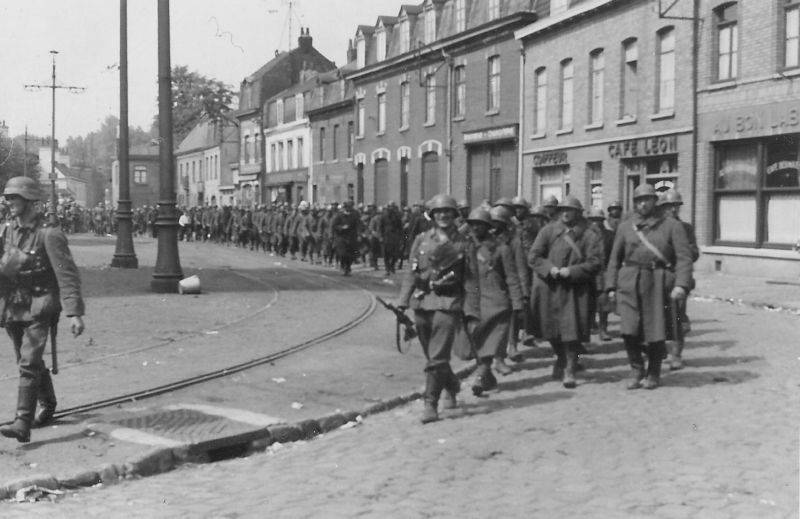
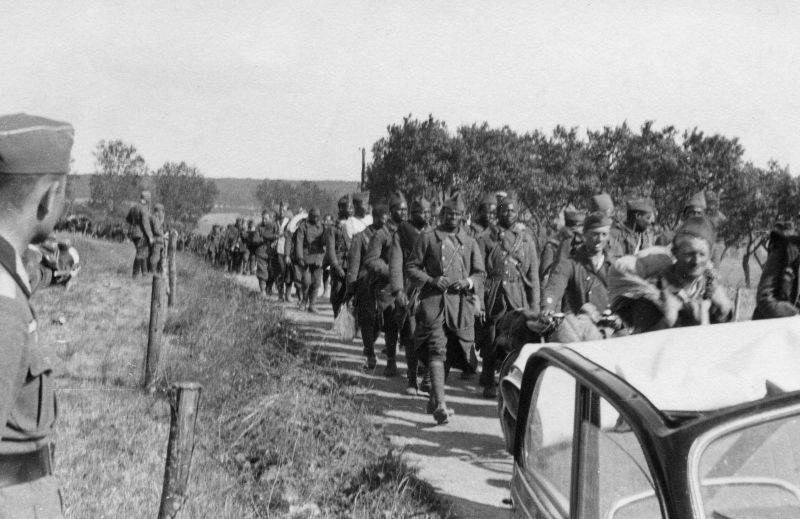
Compiegne
On June 20, 1940, the Germans invited the French delegation to come to Tours. On the same day, the French delegation, consisting of the commander of the army group, General Hüntziger, the former French ambassador to Poland Noel, the chief of staff of the Navy, Rear Admiral Le Luc, the chief of staff of the Air Force, General Bergeret, and the former military attache in Rome, General Parisot, arrived in Tours. The next day, the delegation was taken to the Retond station in Compiegne Forest. Here, 22 years ago, on November 11, 1918, Marshal Foch dictated the terms of the armistice to the Second Reich. Hitler ordered the seizure of the historic carriage from the museum. To humiliate the French, he was put in the same place as in 1918.
The whole top of the Third Reich, led by Hitler, arrived at the ceremony. In fact, it was a surrender, not a peace agreement, as Peten had hoped. The chairman of the negotiations, Keitel announced the terms of the ceasefire, and stressed that they cannot be changed. The French were invited to sign an agreement. Huntziger tried to soften the conditions, but received a cold refusal. On only one question, Keitel expressed understanding. This is the need to preserve the French army in the face of the threat of strengthening communists. On June 22, 18 hours 32 minutes, Hüntziger signed an armistice agreement on behalf of France. On the German side, Keitel signed the document.
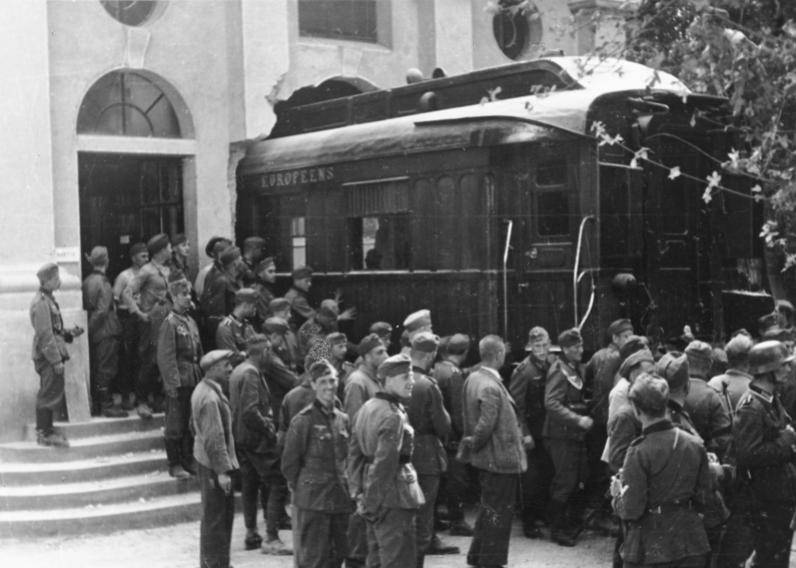
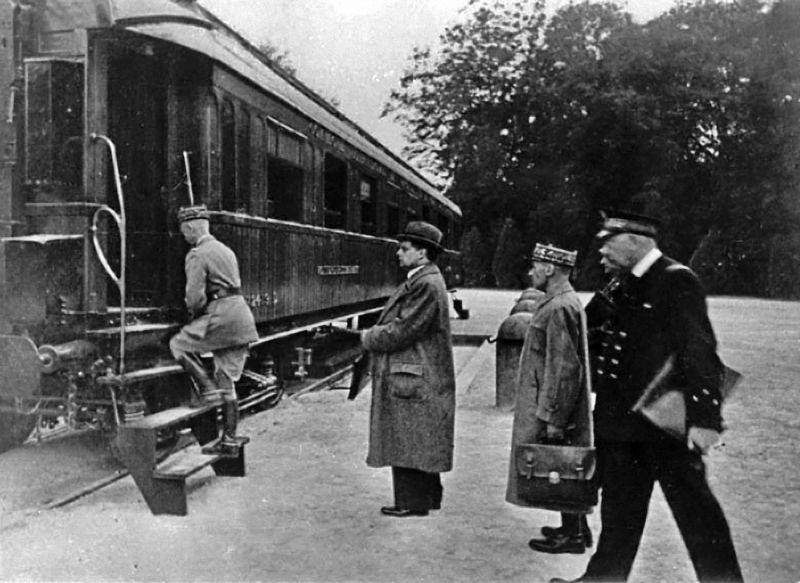
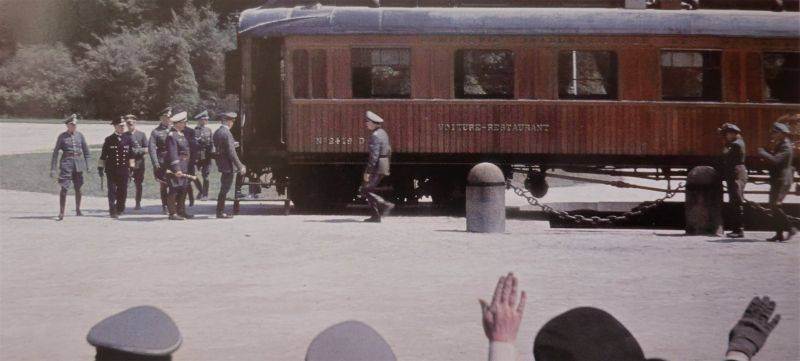
France ceased hostilities. The French armed forces were subject to demobilization and disarmament. The Peten regime was allowed to have an army to maintain order. The country was divided into three parts. Alsace and Lorraine were part of the Reich. Of the rest of France, the Nazis occupied a little more than half: the northern, most industrialized areas, and the western, Atlantic coast. The French capital also remained under the Nazis. In the occupation zone, power passed to the German command. All military facilities, industry, communications and transport, stocks of raw materials, etc. were transferred to the Germans in good condition. As a result, Reich controlled 65% of the population of France, most of its industrial and agricultural potential.
About 40% of the country (Southern France) remained under the control of the Petain government. Armament and military property was concentrated in warehouses and was under the control of German and Italian authorities. The Germans could get weapons and ammunition for the needs of the Wehrmacht. The fleet remained in ports; they planned to disarm it under German control. The French authorities incurred the costs of maintaining the occupying forces. Also, the French had to supply industrial and agricultural products on the terms dictated to them. Peten and Laval headed for the creation of a fascist state. On July 10-11, 1940, Pétain concentrated in his hands the executive, legislative, and judicial powers, and received dictatorial powers. Pétain and his entourage hoped to become Hitler's junior partner in a “new order” in Europe.
On June 23, 1940, the French delegation on German planes was taken to Rome. On June 24, the Franco-Italian Armistice Agreement was signed. On June 25, hostilities in France were officially discontinued. Italy, under pressure from Germany, had to abandon most of its demands. Italy transferred a small territory on the border. France also created a 50-kilometer demilitarized zone on the border with Italy, disarmed a number of ports and bases in France and the colonies.
In fact, the Nazis used the same methods that the European colonialists (British, Belgians, French, etc.) used in their colonies. We selected the top, ready for cooperation, and acted through it. French politicians, officials, industrialists and bankers were fully satisfied with their position (they maintained their position and capital, could increase them). Colonies where there were no German soldiers obeyed. A strong fleet surrendered without a fight. The occupation regime was initially quite mild. The German generals wanted to look "cultural", demanded not to let the SS, the Gestapo and other punitive organs into France. French society easily adopted a new life. Nobody thought of any continuation of the struggle; the rebellious ones were more likely an exception to the rule. General De Gaulle created the Free France committee. But he had very few fighters: about a regiment of tens of millions. Therefore, he had to submit to the British. And in the homeland of De Gaulle was called a traitor who violated the oath. As a result, there was practically no resistance movement at that time in France. No opposition to traitors and defeatists.
This was the triumph of Hitler and the Third Reich. Holland, Belgium and France were torn apart in six weeks! France lost 84 thousand people killed, 1,5 million people were captured. Wehrmacht losses: 27 thousand dead, over 18 thousand missing, 111 thousand wounded.
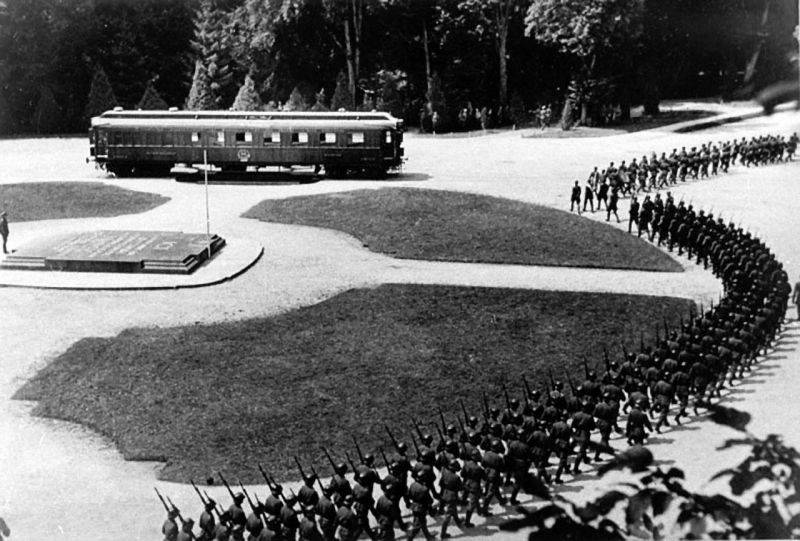
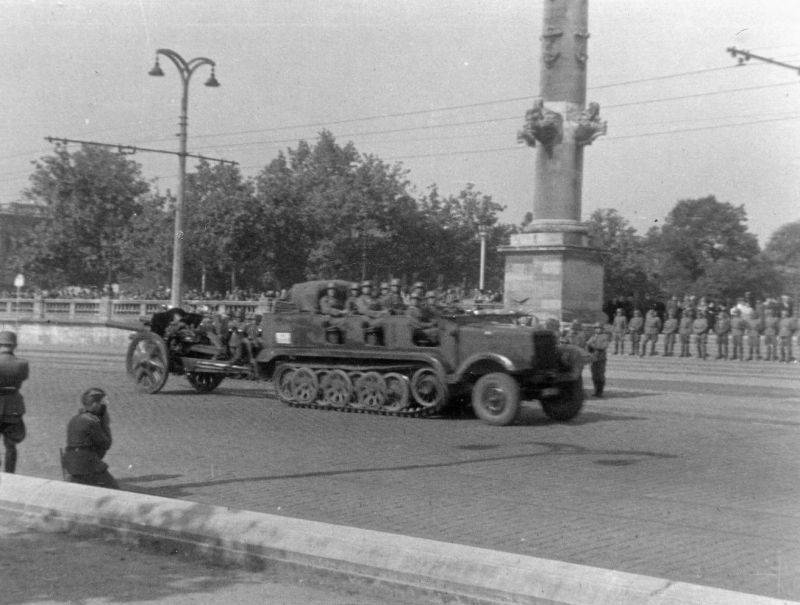
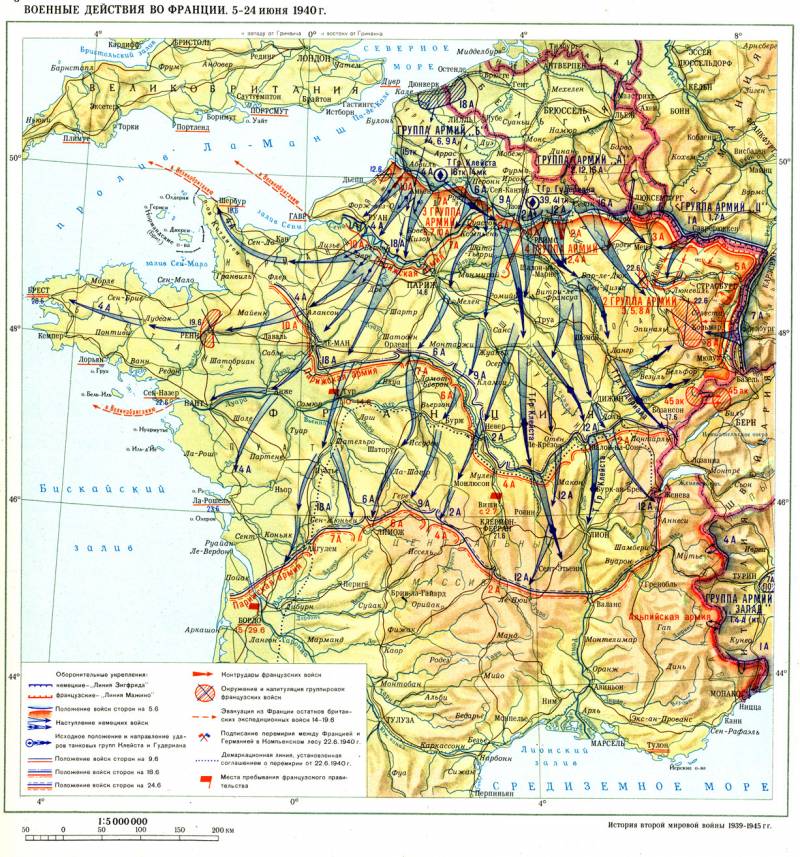
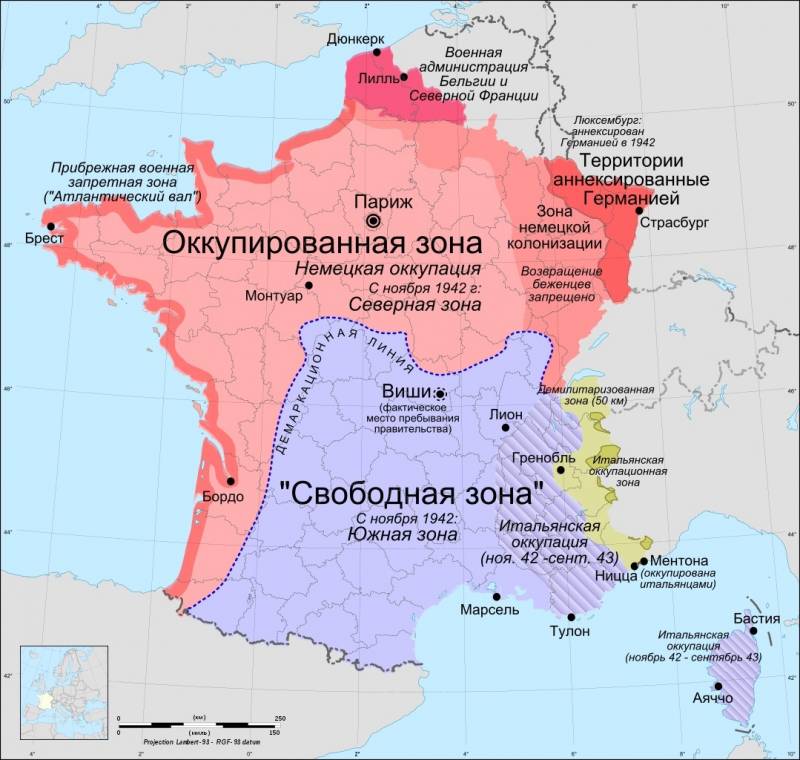
Information